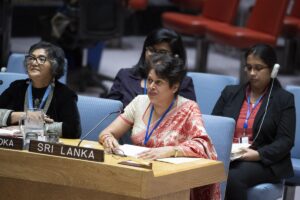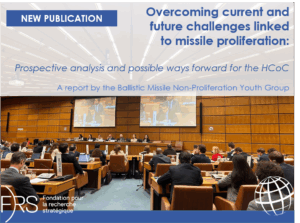Ballistic missile proliferation in the Middle East: What role for CBMs such as the HCoC?
17 May 2022
Dubai
On 17 May 2022, FRS experts met with a delegation of researchers and officials from the United Arab Emirates in Dubai (UAE). The meeting aimed at discussing about trends in missile proliferation in the region, the benefits of joining the Code for states of the region, the challenges facing the Code, as well as to exchange perspectives on dual-use technologies control.
AGENDA
09:00 – 10:15 Ballistic Proliferation and Security in the Middle East
- Welcoming Address / Introductory Remarks: Levallois & EU Representative & Mr. Mohamed Baharoon
- Moderator: Mohamed Baharoon
- Key Issues:
- Ballistic missile proliferation trends and dynamics in the region
- Factor of proliferation and security challenges linked to the use of ballistic missile in regional conflicts
- Mitigation strategies and perspectives
10:30 – 11:30 The Hague Code of Conduct (HCoC): a tool to regulate destabilizing weapons and promote peaceful uses?
- Introductory Remarks: Alexandre Houdaye
- Moderator: Sheikha Najla Alqassimi
- Key Issues:
- Contribution of the Code to international security
- Being a Subscribing State: commitments and benefits
- Day-to-day implementation of the Code
- What opportunities for joining the Code? What constraints?

11:45 – 01:00 Enhancing security while fostering the peaceful uses of space & final remarks & final remarks
- Introductory Remarks: Omran Sharaf
- Moderator: Emmanuelle Maitre
- Key Issues:
- Dual-use nature of launching technologies
- Current trends in space and developments in the Gulf
- Interest of transparency and confidence building measures to promote the peaceful use of space.


